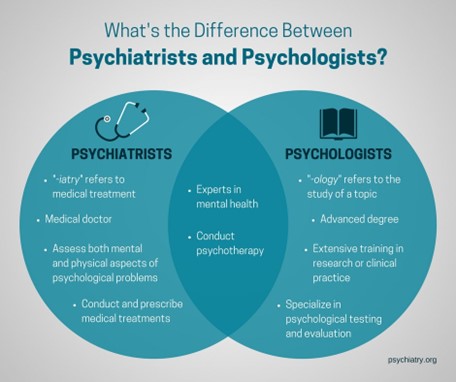PSYCHIATRIST is a title obtained after completing a medical degree and further specialization in mental illnesses. In total, it requires 5½ years of medical education and 2 years of clinical service to obtain a license, followed by 4½ years of service in psychiatry, internal medicine, and neurology.
PSYCHIATRY is defined by the National Board of Health and Welfare as “a… medical specialty encompassing investigation, assessment, diagnosis, treatment, follow-up, as well as care and rehabilitation for mental illnesses.” In addition to knowledge of medication, social psychiatry, addiction disorders, etc., psychiatrists should have “knowledge of the theoretical foundations of various psychological treatment methods… [and be able to] assess the suitability of psychological methods… and manage patients with psychological treatment methods.”
According to the Swedish Psychiatric Association, specialist physicians should be familiar with “psychotherapeutic terms and concepts from various theoretical models, different psychotherapeutic orientations and their indications, evaluation of psychological treatment methods, difficulties that may arise during psychological treatment.”
QUESTION: Why should psychiatrists have knowledge of psychotherapy? I’ll soon get back to the question!
+++++++
PSYCHOLOGIST is a title achieved after completing (usually) the psychology program at university and then serving as a “PTP psychologist” for a year. Afterward, one becomes a licensed psychologist.
PSYCHOLOGY, according to the Department of Psychology at Stockholm University, is “a systematic exploration of people’s experiences and behaviors… people are both biological, social, and cultural beings seeking meaning and interpreting themselves and their situation in the world.”
+++++++
Shouldn’t ONE science be able to explain the “entire psyche”? Here’s how the National Committee for Psychology responds: “Sociology and other social sciences have much to tell us about humans as social beings. The humanities teach us about humans as interpreting, communicating, and creative beings. The biological sciences provide us with the evolutionary perspective on adaptation to the environment and the limitations imposed by the nervous system, physiology, and sensory organs.”
No single scientific discipline or method holds the copyright on how mental problems arise or should be treated. Therefore, the perspectives of psychiatrists, psychologists, sociologists, and social workers on your problems have different emphases. Here’s a figure from the American Psychiatric Association illustrating the differences between a psychiatrist and a psychologist.

Now it’s time for our third “psy-word”, training in psychotherapy
